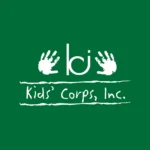News
Stay up to date!
KCI will be at Reading Rendezvous on May 18th, 12-4pm at the Loussac Library Lawn. Stop by to say hi and visit all the amazing vendors as we kick off Summer Reading!
In the Home Visiting Program, we have been working hard to enhance our fine motor and language skills. Families have been working with the children doing name practice, lacing, sorting/matching shapes, reading books about emotions and practicing emotion face expressions in the mirror!
Child care means business! Child care is a part of upstream prevention of child abuse and neglect. For many Alaskan families, bringing in an income isn’t a luxury – it’s a necessity. That means that child care (with family members or in a center) is an important part of life. When parents have …the piece of mind that their child is well-cared for, they can contribute to society and their family in more meaningful ways.
Mental health is part of physical health! In Alaska, far too many of our young people feel sad or hopeless (check the link below to see the data) – we need to give them better support. Mental health education is key to teens knowing where to find help when they need it and identify what to do if a …friend needs help. See the data on Youth Mental Health in Alaska (go to page 24): https://static1.squarespace.com/static/61fef737004f564915c6b3cd/t/ 648d04a0d6c50d702e795b15/1686963381943/Health+2022.pdf
Join Anchorage Early Childhood Coalition on Saturday May 4th for a Community Baby Shower with activities, games and support for parents of young children (Prenatal to 1 years old)
Our KCI Home Visiting Team will be there too doing art activities and recruiting!
Click here to learn …more and register: Anchorage Community Baby Shower Tickets, Sat, May 4, 2024 at 11:00 AM | Eventbrite
In a world where technology is at our fingertips, it's crucial to ensure our children and youth navigate digital spaces safely. When we have open, honest, and nonjudgemental conversations with our kids about their experiences online, we can co-create healthy boundaries and opportunities for …learning. How do you start the conversation? Get tips, resources, and more at: alaskachildrenstrust.org/online-safety
For #ChildAbusePreventionMonth this April, learn the signs of sexual grooming. Child sexual abusers often go out of their way to appear helpful to kids’ families. Grooming could look like taking a child on special, solo outings or communicating with a child privately online. If you see one of …these behaviors, say something! By speaking out, you could stop sexual grooming and help keep a child safe. Learn more tips for keeping kids safe from child sexual abuse in our booklet for parents and educators: www.alaskachildrenstrust.org/csa-prevention
This #ChildAbusePreventionMonth, we encourage parents to teach their kids the proper names for body parts. While it’s important to teach kids that there are special rules about privacy when it comes to genitalia, that doesn’t mean those body parts should never be discussed! In fact, when we …talk about “private parts” in a matter-offact, medically accurate way, we teach kids that they should never feel ashamed of their bodies or scared to ask questions.












